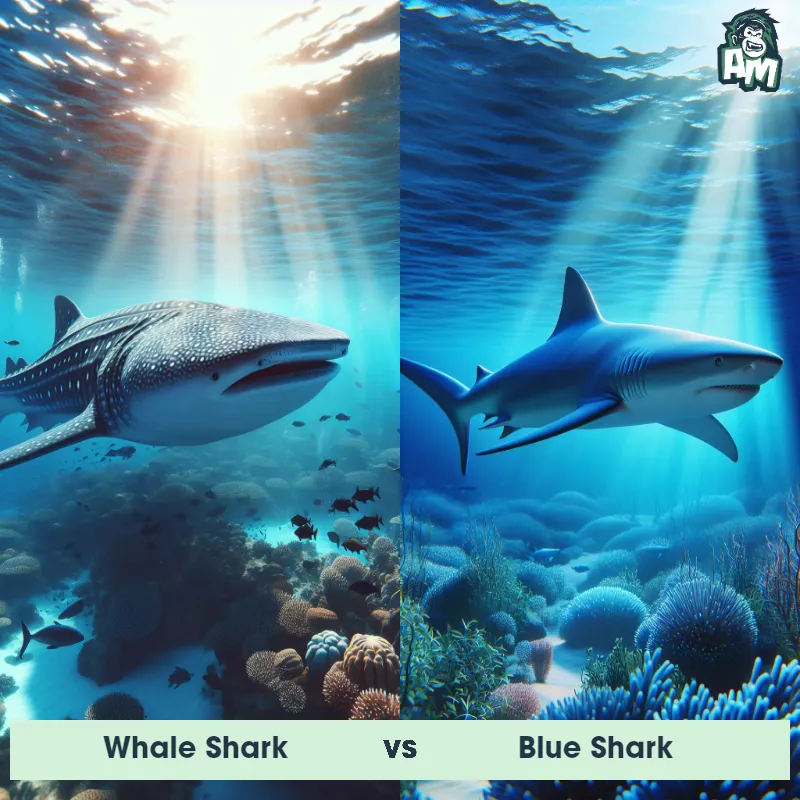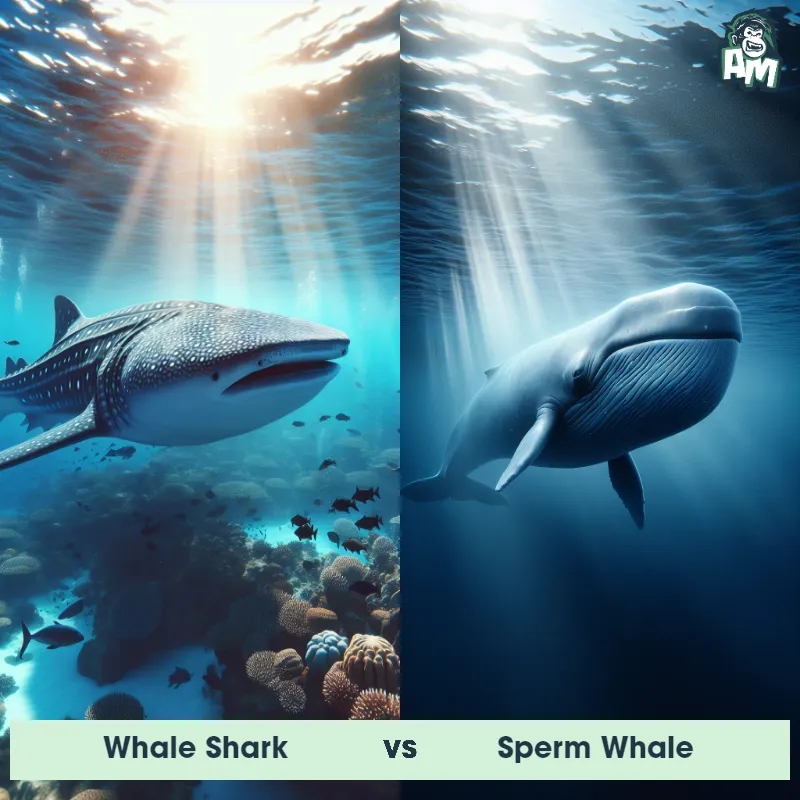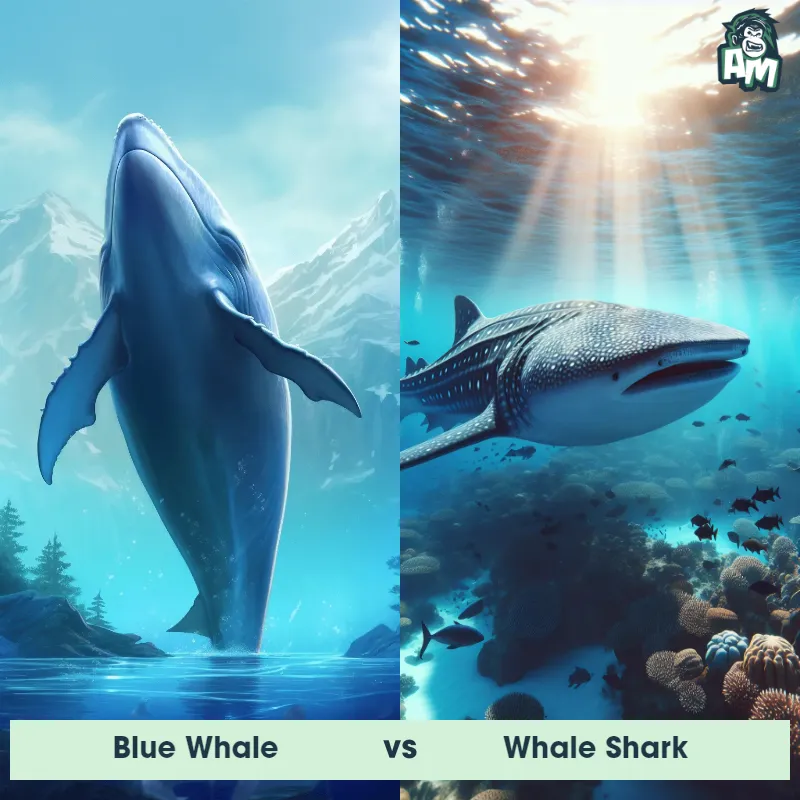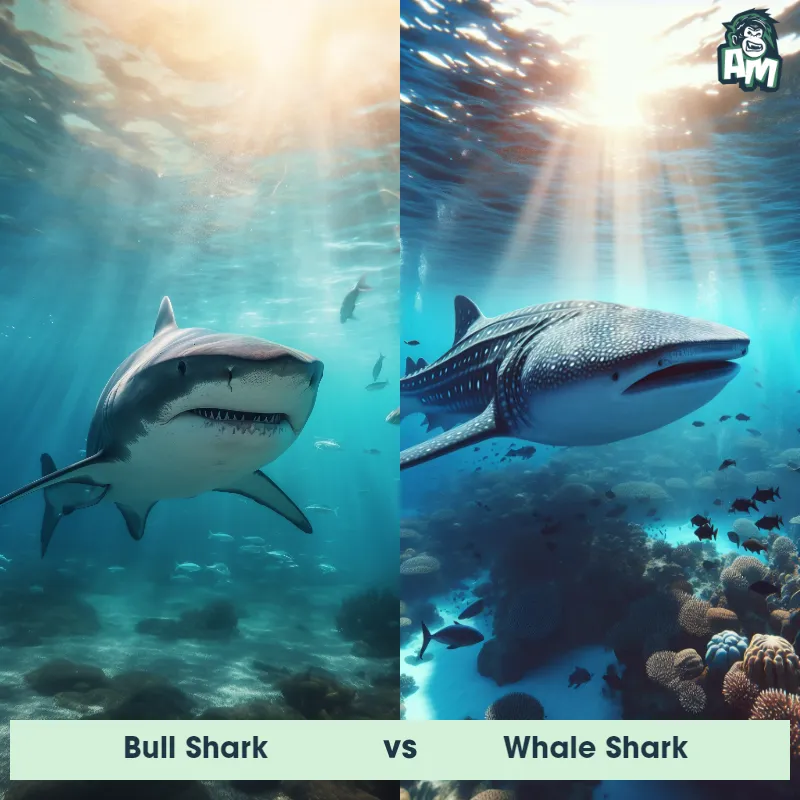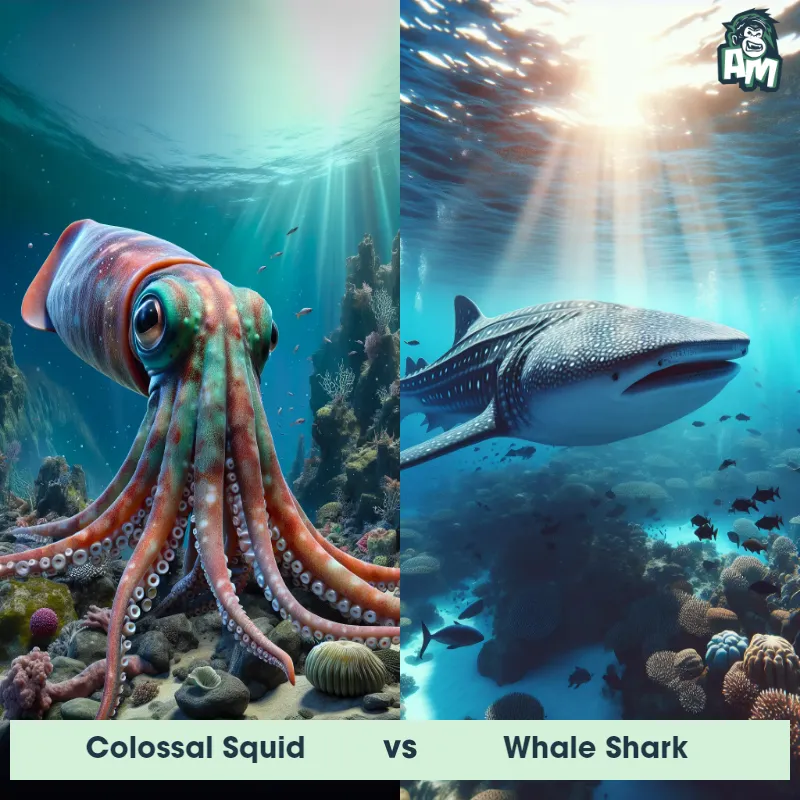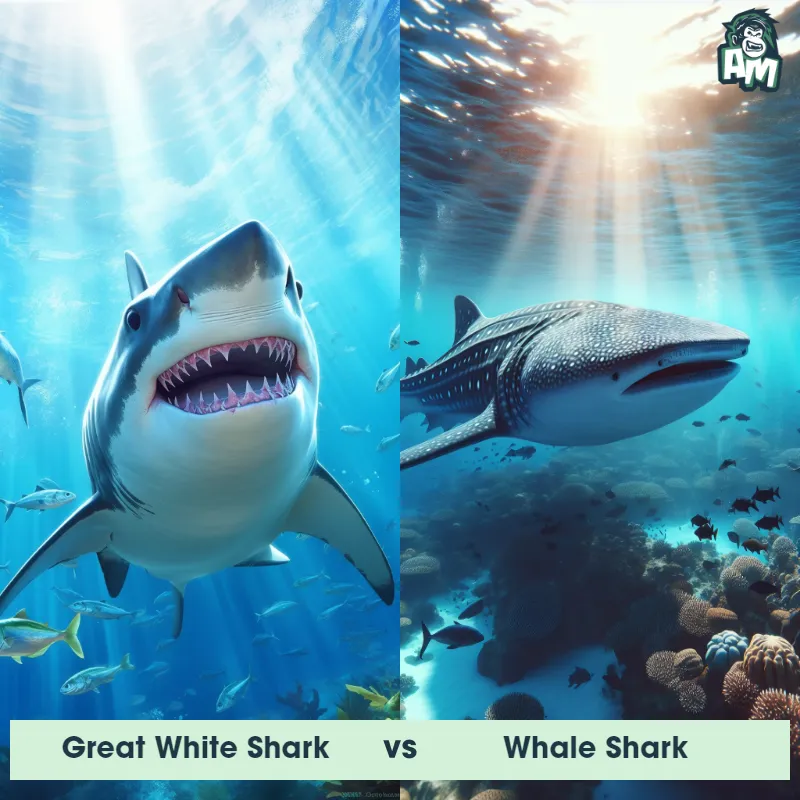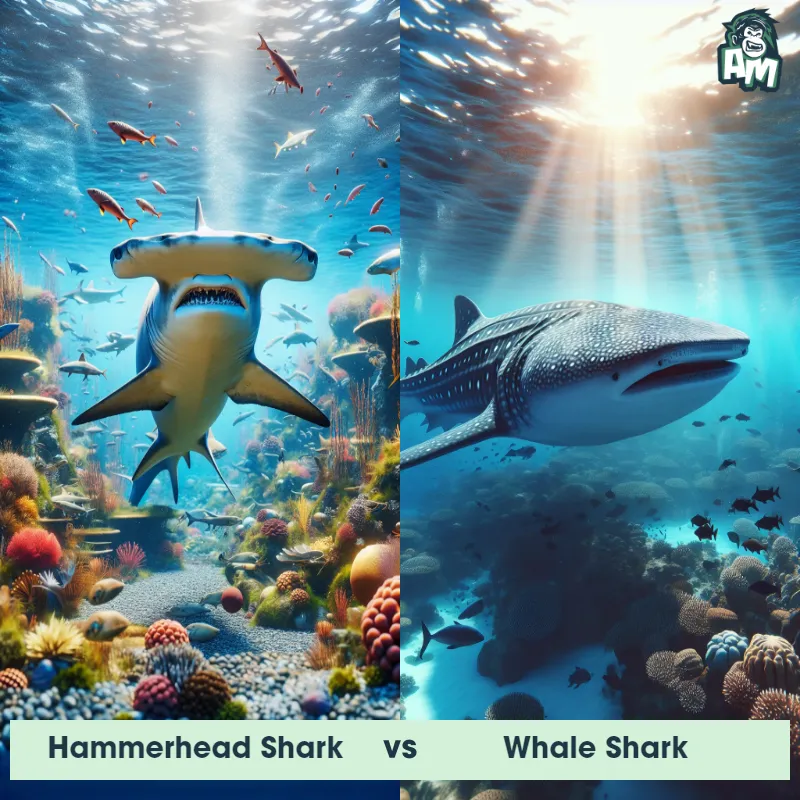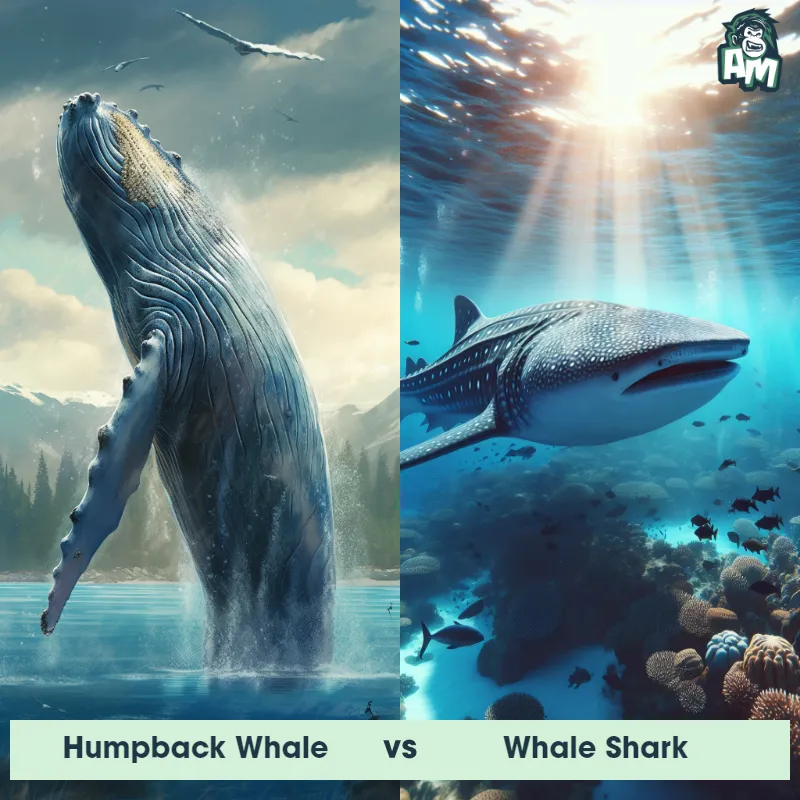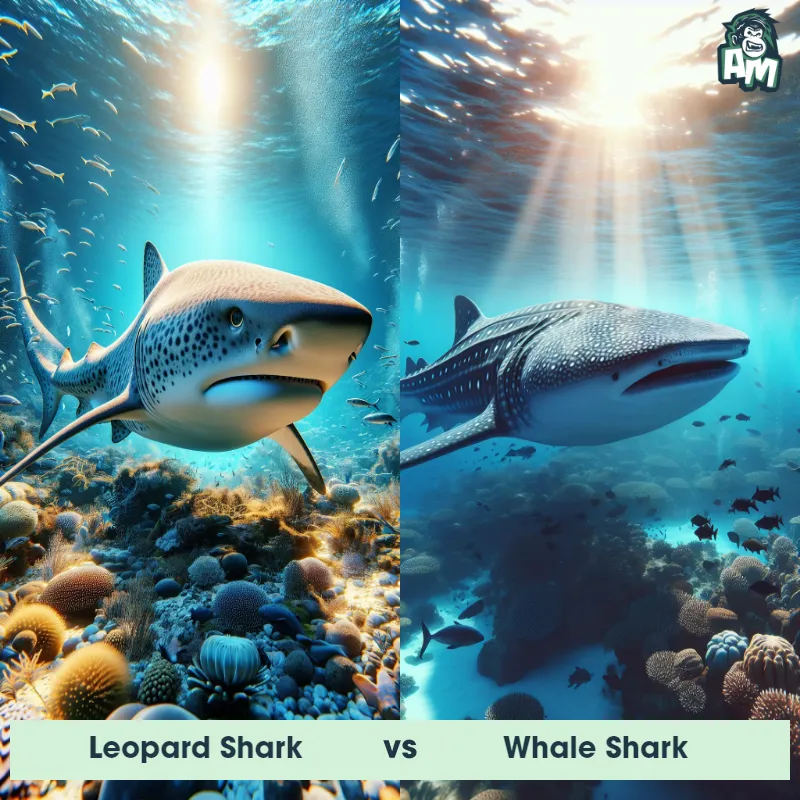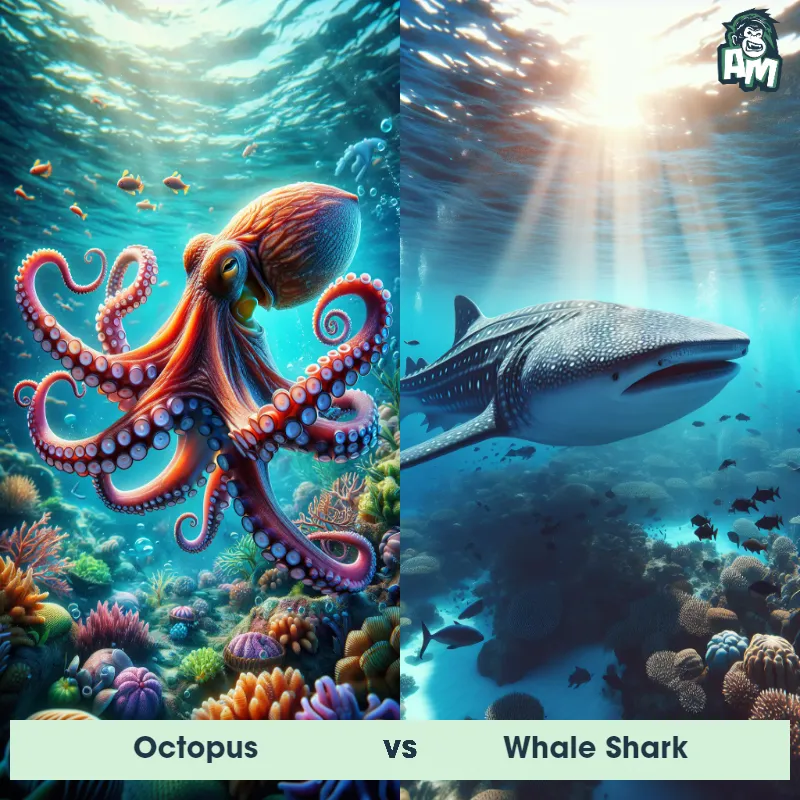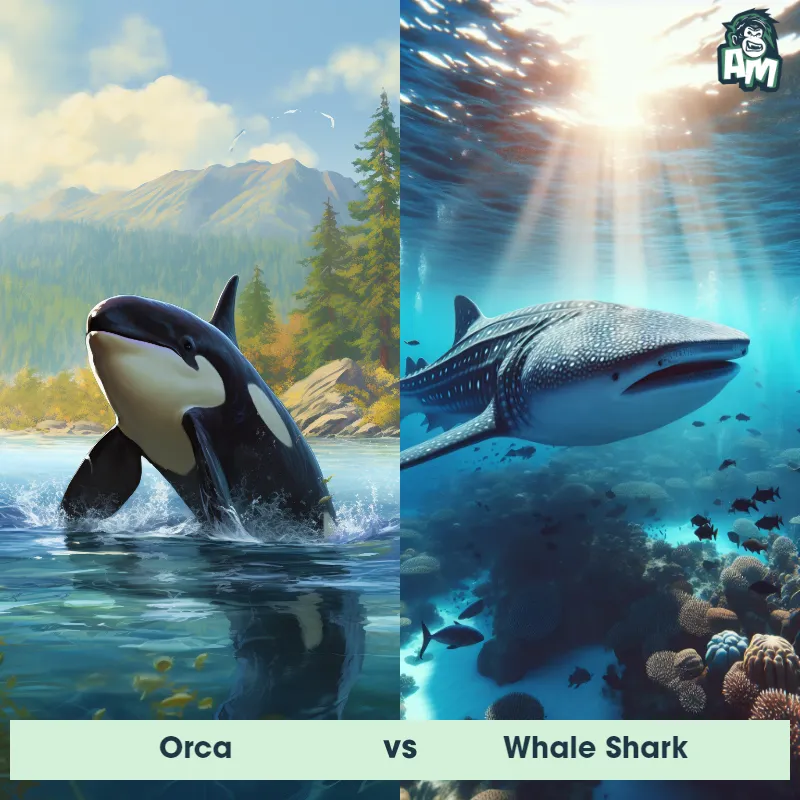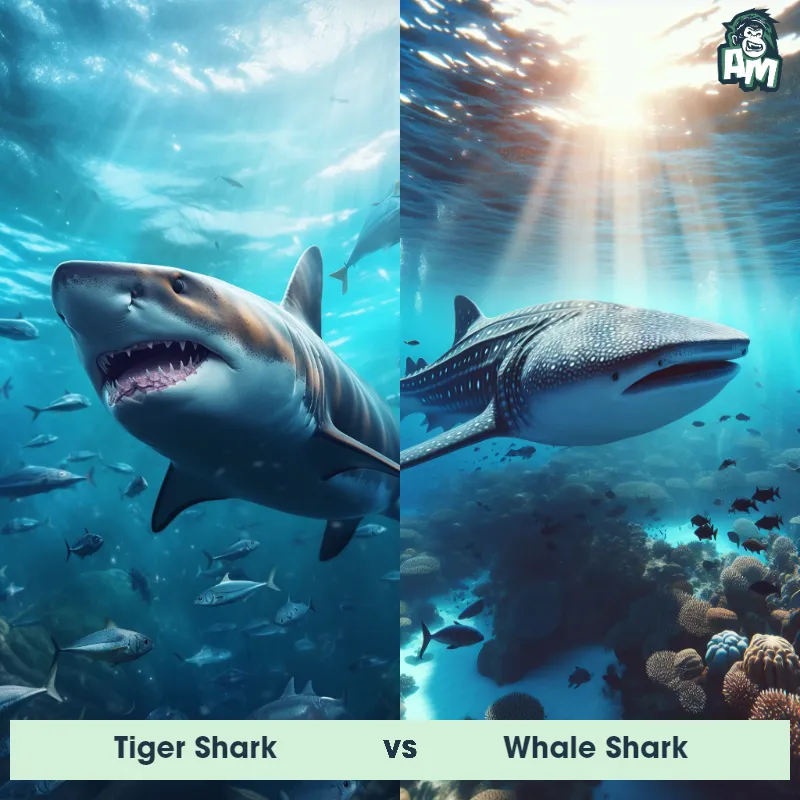The Whale Shark
The Whale Shark is the largest fish in the ocean, measuring up to 40 feet in length and weighing up to 20 tons. It is unmistakable due to its enormous size, wide, flat head, and mouth that can reach about 5 feet wide, allowing it to filter feed on large quantities of plankton and small fish. Despite its massive size, the Whale Shark has a docile nature, making it a popular species for divers to observe up close.
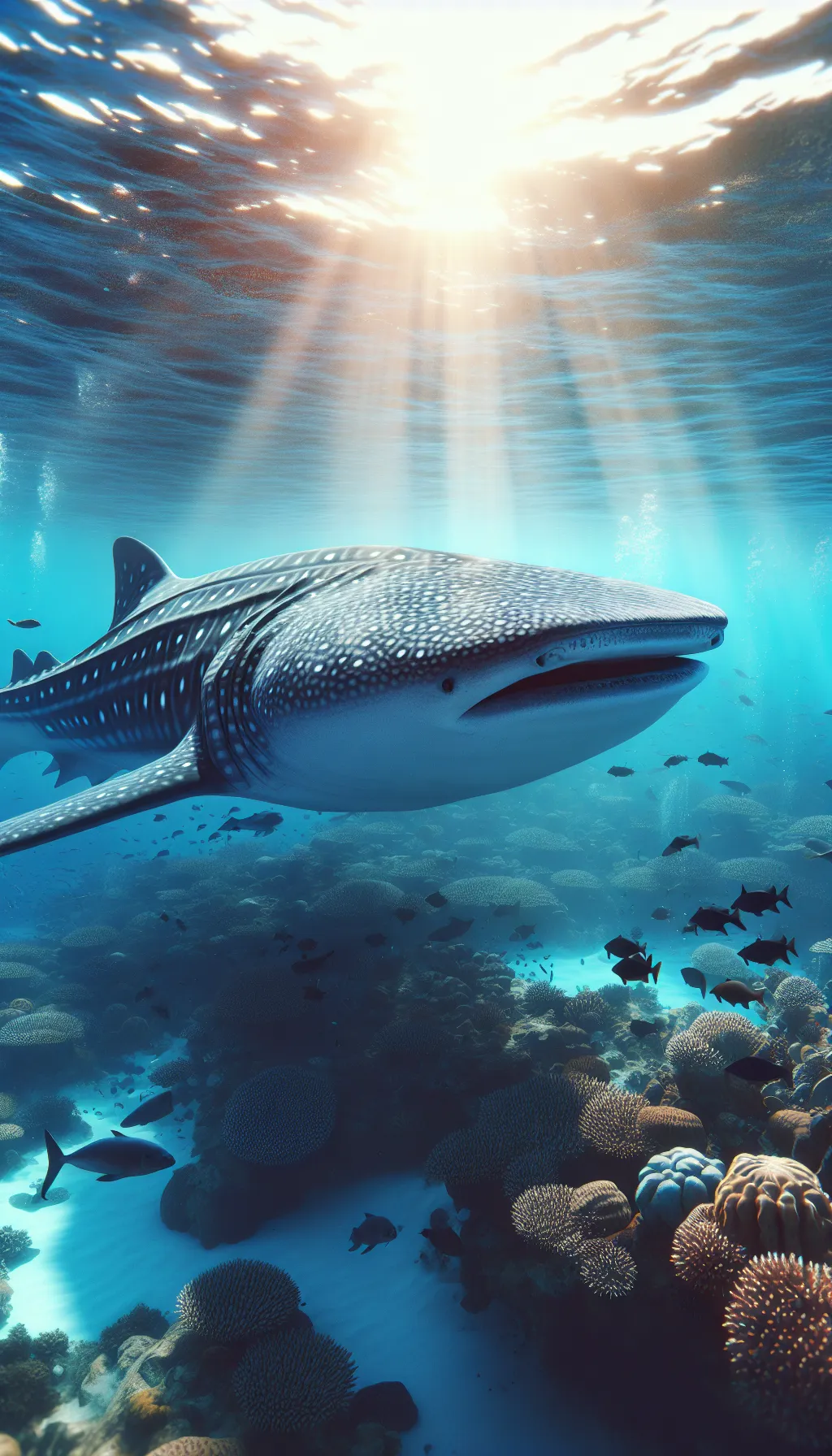
| Whale Shark | |
|---|---|
| Size | Up to 40 feet (12 meters) |
| Weight | Around 20 tons (18,000 kilograms) |
| Speed | 3mph (5km/h) |
| Key Strength | None |
| Biggest Weakness | None |
| Scientific Name | Rhincodon typus |
| Family | Rhincodontidae |
| Habitat | Open ocean |
| Geography | Tropical and warm waters worldwide |
| Diet | Plankton, small fish, and small squid |
| Lifespan | 70 years - 100 years |

The Whale Shark
The Whale Shark is the largest fish in the ocean, measuring up to 40 feet in length and weighing up to 20 tons. It is unmistakable due to its enormous size, wide, flat head, and mouth that can reach about 5 feet wide, allowing it to filter feed on large quantities of plankton and small fish. Despite its massive size, the Whale Shark has a docile nature, making it a popular species for divers to observe up close.
Fun Fact: The Whale Shark is not a whale but actually a shark, belonging to the order Orectolobiformes, making it the largest known extant fish species.
| Whale Shark | |
|---|---|
| Size | Up to 40 feet (12 meters) |
| Weight | Around 20 tons (18,000 kilograms) |
| Speed | 3mph (5km/h) |
| Key Strength | None |
| Biggest Weakness | None |
| Scientific Name | Rhincodon typus |
| Family | Rhincodontidae |
| Habitat | Open ocean |
| Geography | Tropical and warm waters worldwide |
| Diet | Plankton, small fish, and small squid |
| Lifespan | 70 years - 100 years |
Whale Shark Matchups
We use AI to simulate matchups between the Whale Shark and other animals. Our simulation considers size, strength, and natural predatory behaviors to determine the most likely outcome.

Can't find the Matchup you want?
Create Your Own MatchupWhale Shark: Diet, Predators, Aggression, and Defensive Behaviors
What do Whale Sharks eat?
Whale Sharks are filter feeders that primarily consume plankton, small fish, and other small organisms in the ocean. Whale Shark use their large mouths to filter feed, taking in vast amounts of water and then filtering out the food particles with their gill rakers.
Do Whale Sharks have any predators?
While Whale Sharks are the largest fish in the ocean, Whale Shark have few natural predators due to their size. However, some potential predators of Whale Sharks include large predatory sharks, such as Tiger Sharks and Great White Sharks, as well as orcas (killer whales).
Are Whale Sharks aggressive?
Whale Sharks are generally known for their docile nature and are not considered aggressive towards humans or other marine creatures. Whale Shark are gentle giants and typically swim peacefully through the water, even allowing divers to swim alongside them in certain locations.
Do Whale Sharks engage in fights?
Whale Sharks are not known to engage in fights with other animals, including members of their own species. Whale Shark are solitary animals that primarily focus on feeding and swimming in the open ocean, rather than interacting aggressively with other creatures.
How do Whale Sharks defend themselves?
Whale Sharks have thick skin and a tough layer of dermal denticles that provide some protection against potential threats. Additionally, their immense size and ability to swim swiftly allow them to avoid dangerous situations and potential predators in the vast ocean environment.
What is the biggest weakness of Whale Sharks in a fight?
One of the biggest weaknesses of Whale Sharks in a fight is their lack of aggressive behavior and defense mechanisms. Their peaceful nature and inability to fight back aggressively may put them at a disadvantage when confronted by larger, more aggressive predators in the ocean.
Fun Fact: Whale Sharks are known for their distinctively patterned skin, featuring a unique combination of white spots and stripes on a dark background, which serves as a way for scientists to identify individuals, much like human fingerprints.
Fun Fact: These gigantic creatures undertake long-distance migrations, traveling thousands of miles across different ocean basins, and have been known to gather in certain locations in large numbers during feeding events, creating a remarkable spectacle for nature enthusiasts.



